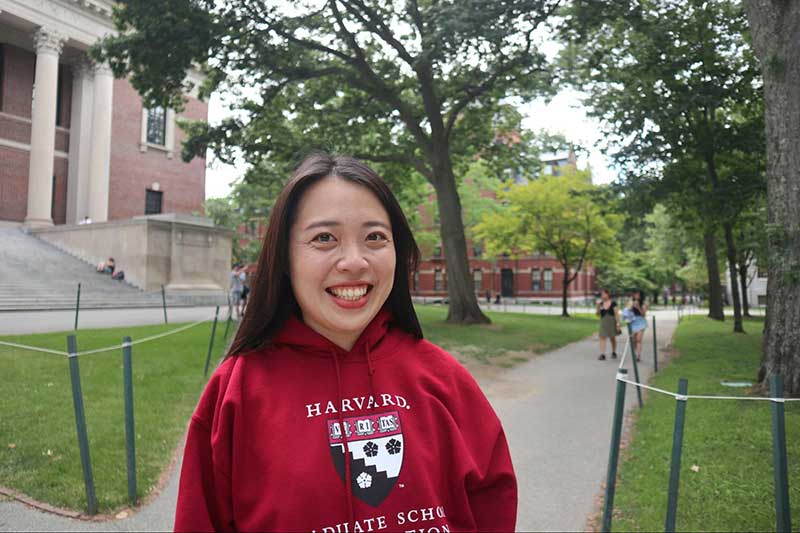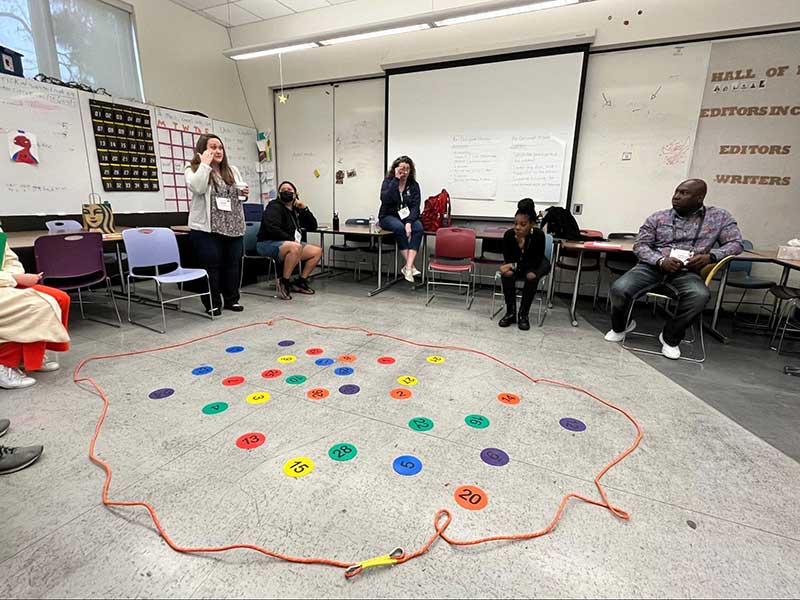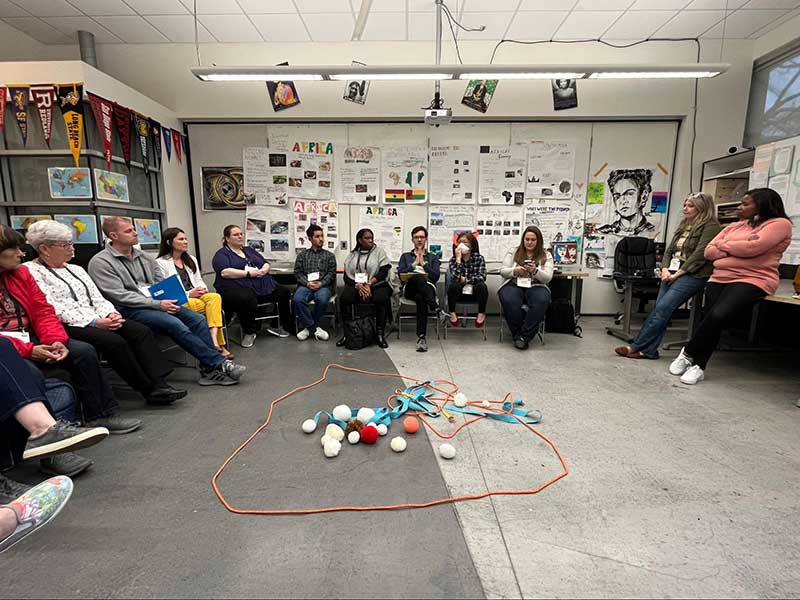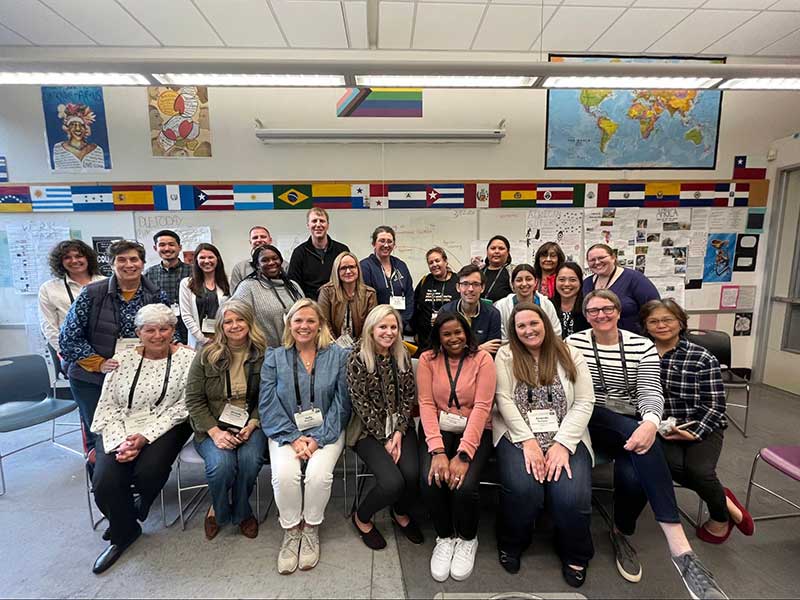
Manami has spent the last year studying deeper learning at HGSE. Before HGSE, she worked with middle/high school students as an after-school program manager, where students were compared by test scores too many times. As a result, they lacked intrinsic motivation to learn and dream about their future. Manami has been exploring ways in which adults can support students to build personal connections to what they are learning and apply it to their paths in college and career.
Recently, she co-facilitated a workshop with me and my teaching assistant and Ph.D. candidate, James Jack at High Tech High’s Deeper Learning Conference.The session called, “Co Opting Classroom Constraints” asked questions about how we can reflect on roles, norms, resources, and relationships in the classrooms to support transformational learning for all learners. We asked questions such as:
- Who are you? (role) What do you do in these roles? (action) What skills do you use in these roles? (competencies)
- What happens when you center fun and joy in your routine?
- Who is the student to whom you are dedicating the redesigned course for?
We experienced how each educator played many different roles in their lives, developing different competencies; however, sometimes it is difficult to think beyond their set roles when they face constraints. Centering fun and joy can sometimes help you think outside the box and find ways to overcome constraints. Knowing and expressing to whom you are dedicating your work can help inspire others as well.

In addition, Manami spent time interviewing students about their experiences with project-based learning. Here are some of the tensions she found:
- Project-based learning is one pedagogy to nurture agency in students; other pedagogies may need to be combined to grow academic discipline
- For project-based learning to feel authentic to the student, holding space and time to cultivate a personal connection to the essential question is the key
- Great project-based learning needs close observance and flexibility; start with a broad question in the discovery phase and do not be afraid to change the course as the learning progresses for students
What’s next for Manami?
She has many possible paths. She may really build her self-directed learning center in Japan, MANABI, that she designed in my class, Building Democratic Schools; she may continue on the journey of research, exploring deeper learning that balances out both academic excellence and student agency.
Wherever she goes, I am proud to call her my colleague and a co-author of our upcoming book, Building Democratic Schools: A Global Perspective.


